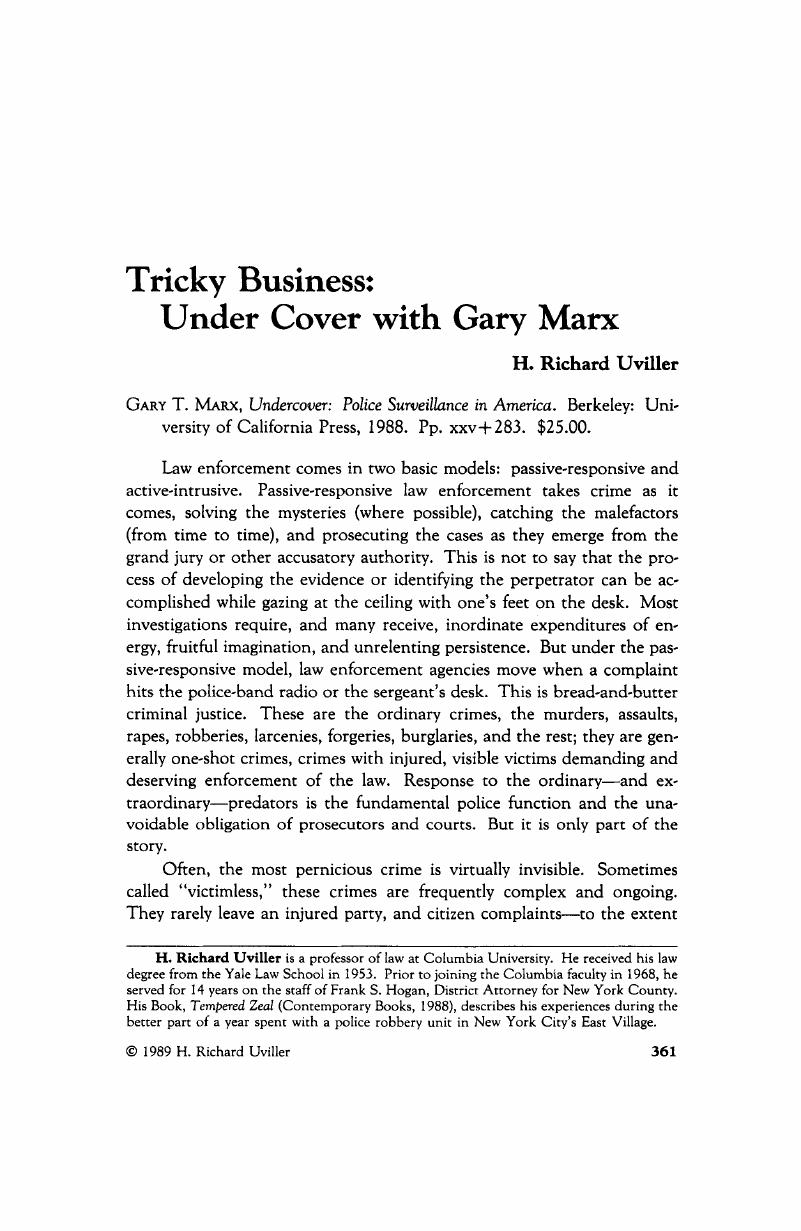No CrossRef data available.
Article contents
Tricky Business: Under Cover with Gary Marx
Published online by Cambridge University Press: 27 December 2018
Abstract

- Type
- Review Article
- Information
- Copyright
- Copyright © American Bar Foundation, 1989
References
1 Sorrells v. United States, 287 U. S. 435 (1932).Google Scholar
2 At the same time, we cannot afford to be too sanguine concerning the good faith of agencies of secret surveillance. We now know the shame of our government during the Hoover era when the feared and fearsome Director of the FBI was allowed unrestrained scope to pursue his obsessional and delusional campaign against Communist spying and subversion. While Congress and the political process appear to have reasserted control, vigilance must continue to be the order of business where the self-styled patriots command large and secret operations entailing invasions of privacy.Google Scholar
3 Mapp v. Ohio, 367 U. S. 643 (1961), held that the Fourth Amendment as applied to the states by Wolf v. Colorado, 338 U. S. 25 (1949) included the exclusionary remedy imposed on the federal courts by Weeks v. United States, 232 U. S. 383 (1914).Google Scholar
4 United States v. Wade, 388 U. S. 218 (1967), and Gilbert v. California, 388 U. S. 363 (1967), ruled that a person formally accused of crime enjoys a right to the assistance of counsel at all critical stages of the proceedings against him, including the occasion when his person is displayed to witnesses for purposes of recognition and identification.Google Scholar
5 Miranda v. Arizona, 384 U. S. 486 (1966), held that, apart from actual physical or psychological coercion, a person questioned in police custody is ipso facto under duress to furnish damaging statements. Such coerced confessions violate the Fifth Amendment privilege not to be compelled to be a witness against oneself. The inherent coercion of custodial interrogation, however, may be dispelled by police if they inform the suspect of his right to decline to answer and to have advice of an attorney prior to and during interrogation.Google Scholar
6 Uviller, H. Richard, “Evidence from the Mind of the Criminal Suspect: A Reconsideration of the Current Rules of Access and Restraint,” 87 Colum. L. Rev. 1137, 1195–1212 (1987).Google Scholar




